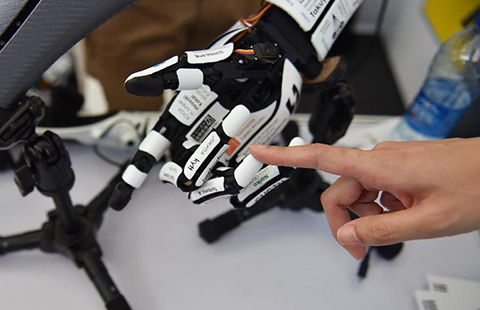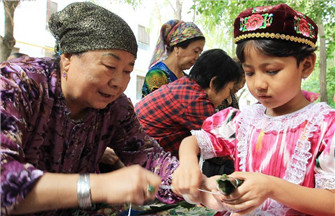Cementing a brighter future for Africa's booming new housing market
Updated: 2015-06-23 09:25
By Hou Liqiang(China Daily)
|
||||||||
"We position our company as one that can make a difference. We are an initiator who builds up a platform and invites those who can join us.
"For example, if we want to launch a cement factory, we will first create a supply and demand relationship and ensure the investor has the least risk with the greatest profit. We are a stakeholder in the cement factory, but we will not be the operator because we have no expertise in running a cement factory."
Hong called her model a "combined fleet", where different companies with different strengths are united to maximize their combined talent.
"A company is always profit-oriented. But we are not a government and we don't have a systematic support system. If we don't do those things (in a country with great shortages), we could hardly make money or make our products competitive," Hong said.
"We win engineering, procurement and construction contracts by investing and financing, and then we promote the development of all related industries, and a whole operational industry chain will be left after we finish our projects."
The model can result in great economic benefit. The World Bank estimates that one housing unit can create five full-time jobs, but Hong said that CITIC projects can result in 10 jobs, since it is not just a housing developer.
"Helping others is actually helping yourself. It's the reality in many developing countries that you will not be able to reach your goal if you don't help them in building a whole support system."
She said many Chinese companies that thought they had won good contracts, worth three times as much as similar projects in China, suffered setbacks through lack of planning. "Materials and equipment are available in China and you only need to make several phone calls to get them. You just cannot find many of them in many African countries no matter how much you pay.
"Without general planning, it's easy to start but difficult or even impossible to finish projects. What they bring to the investment destination countries will not be a package solution. If you only work as a property developer, it's hard to make money. My experience is, as a developer, you need to build up a whole supporting industry chain or lead other companies to build such a chain. Only in this way can you make sure you will succeed in your projects," Hong said.
She said Chinese companies should also be ready to put down roots in Africa. "If you want to take root here, you must involve the locals at various levels, not only the labor force but also executives, and integrate yourself into the local culture by cooperating with all kinds of local companies.
"It's our objective to localize our employees. If there are no skilled workers and executives available, we can train them ourselves. That benefits countries and equips them with the talent they need. It also helps Chinese companies solve practical problems by reducing labor costs and making development sustainable."
- Thailand still faces risk of MERS: official
- 21 civilians injured as blast hits Afghan parliament
- Taliban attack on Afghan parliament widely condemned
- EU launches naval operation against human smugglers
- Russia, China do not form blocs against anyone: Putin
- No daily MERS cases, deaths added in S Korea

 Liu visits Houston Museum of Natural Science
Liu visits Houston Museum of Natural Science
 Liu meets Tsinghua Youth team in Houston
Liu meets Tsinghua Youth team in Houston
 Men get into women's shoes for fun
Men get into women's shoes for fun
 Millions in harmony on Yoga Day
Millions in harmony on Yoga Day
 Liu visits CI in Pittsburgh
Liu visits CI in Pittsburgh
 Shenzhen Maker Week kicks off
Shenzhen Maker Week kicks off
 Chinese wrap up Zongzi to mark upcoming Dragon Boat Festival
Chinese wrap up Zongzi to mark upcoming Dragon Boat Festival
 A Chinese Garden in a Sister City
A Chinese Garden in a Sister City
Most Viewed
Editor's Picks

|

|

|

|

|

|
Today's Top News
Liu Yandong plays basketball diplomacy
Wang Yang hails S&ED
Tsinghua students flying high
Official underlines national defense technology innovation
New anti-corruption app sparks instant flood of public reports
Chinese Premier emboldens state firms' int'l industrial cooperation
CI in Pittsburgh welcomes
vice-premier
Sichuan and Pittsburgh unveil
new school
US Weekly

|

|







